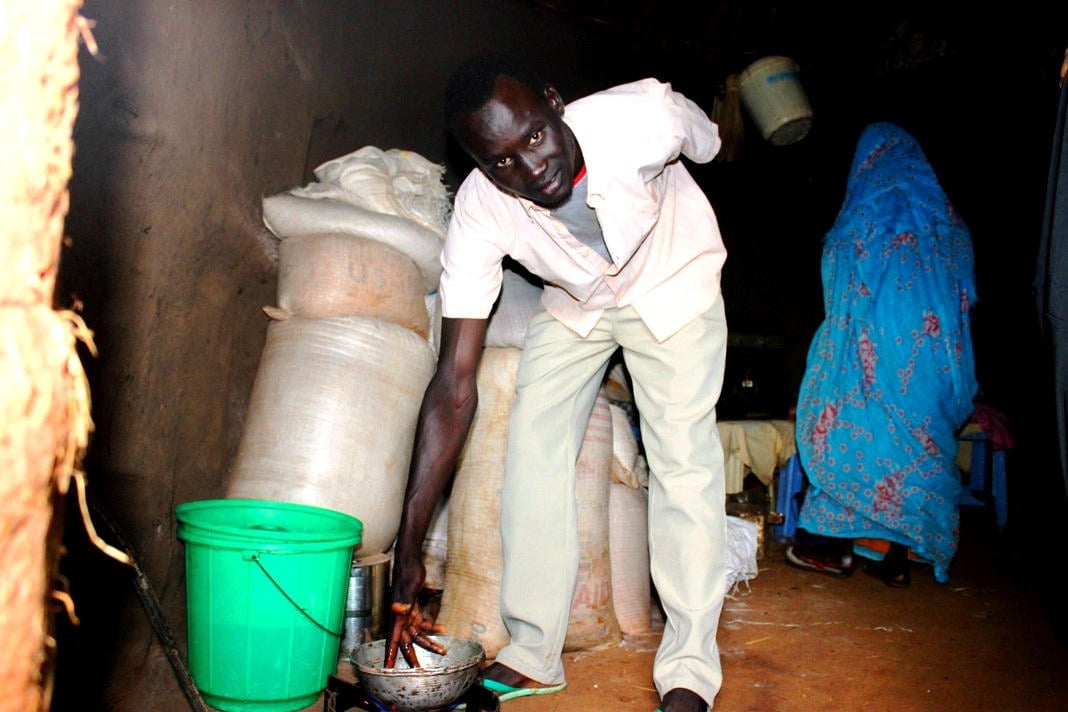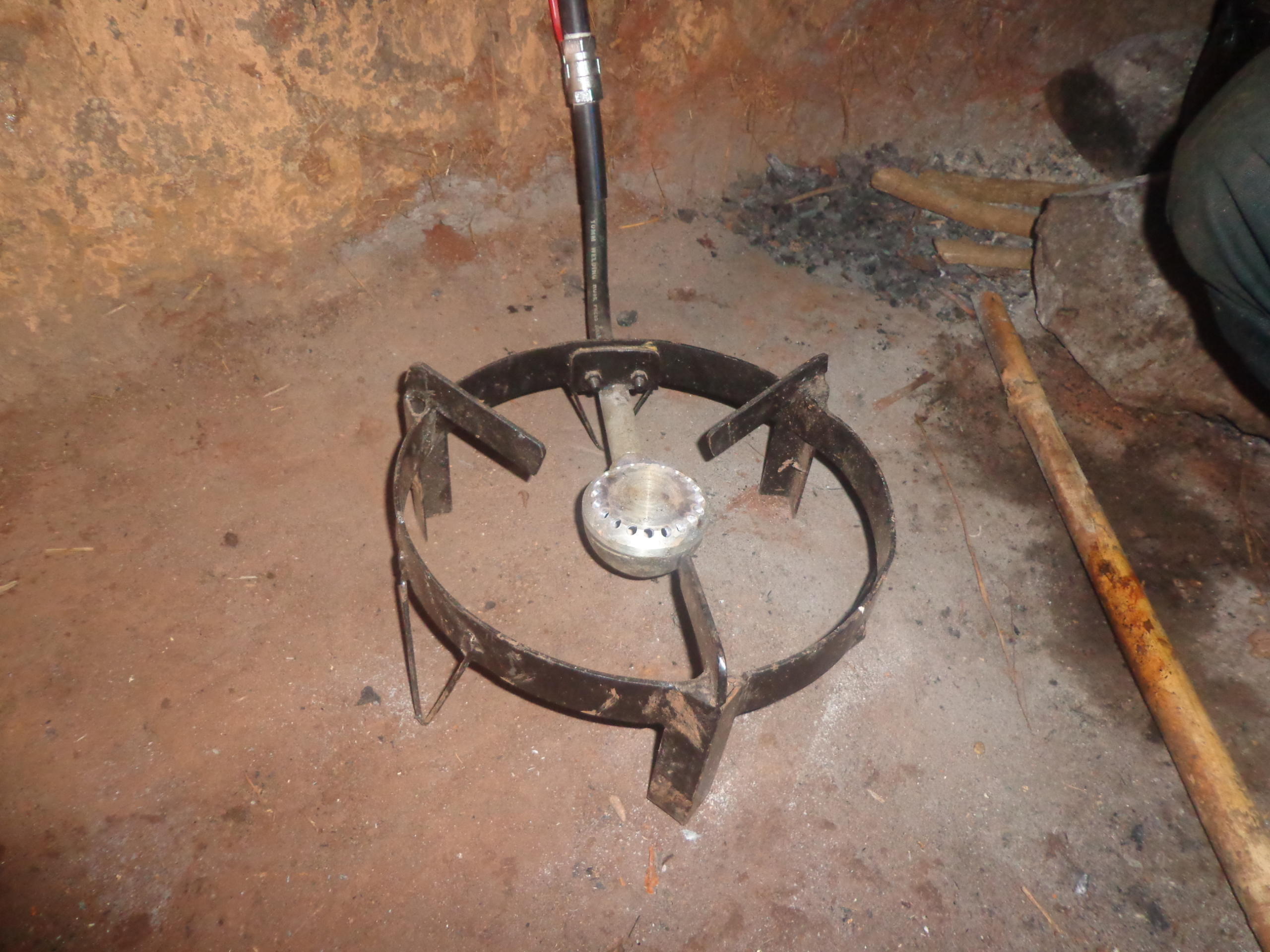
The pilot phase in Bambasi refugee camp, which houses mainly Sudanese refugees, has proven successful and has inspired new plans to apply the innovation to other refugee camps in Ethiopia.
The use of biogas has led to a significant reduction in dependence on firewood for cooking, and women are able to save more time to attend to income generating activities instead of going in search of firewood.
Mwamikazi Aline is a 20 year old man among the few in Bambasi who are benefiting from the biogas project. He uses the biogas fuel to cook his food and warm water for bathing. “Life has become easier for me since I no longer rely on firewood as much as I used to. I also sell the extra gas to gain some money which is also helping me buy other materials.”
 Mwamikazi Aline says the biogas has made is everyday life simpler. Photo: NRC/Yared Ayele
Mwamikazi Aline says the biogas has made is everyday life simpler. Photo: NRC/Yared Ayele
According to Ahmednur Abdi, NRC Country Director in Ethiopia, although the ultimate goal is to convert sanitation, waste management and energy provision into profitable investment, the major advantage at the moment is having the green energy available. “It might decrease refugees demand for assistance from humanitarian organisations, making them (refugees) more self-reliant. It might also improve the relationship between refugees and host community through business transaction”, he says.
 A cooker connected to a biogas source through a gas pipe producing fire in Bambasi refugee camp. Photo: NRC/Yared Ayele.
A cooker connected to a biogas source through a gas pipe producing fire in Bambasi refugee camp. Photo: NRC/Yared Ayele.
NRC community mobilisers have been trained to set up the biogas system the correct way. Refugees are also participating in filling the digester with cow dung. Selected household members as well as interested people in the camp have been engaged in levelling the ground and fixing posts for the toilet construction.

